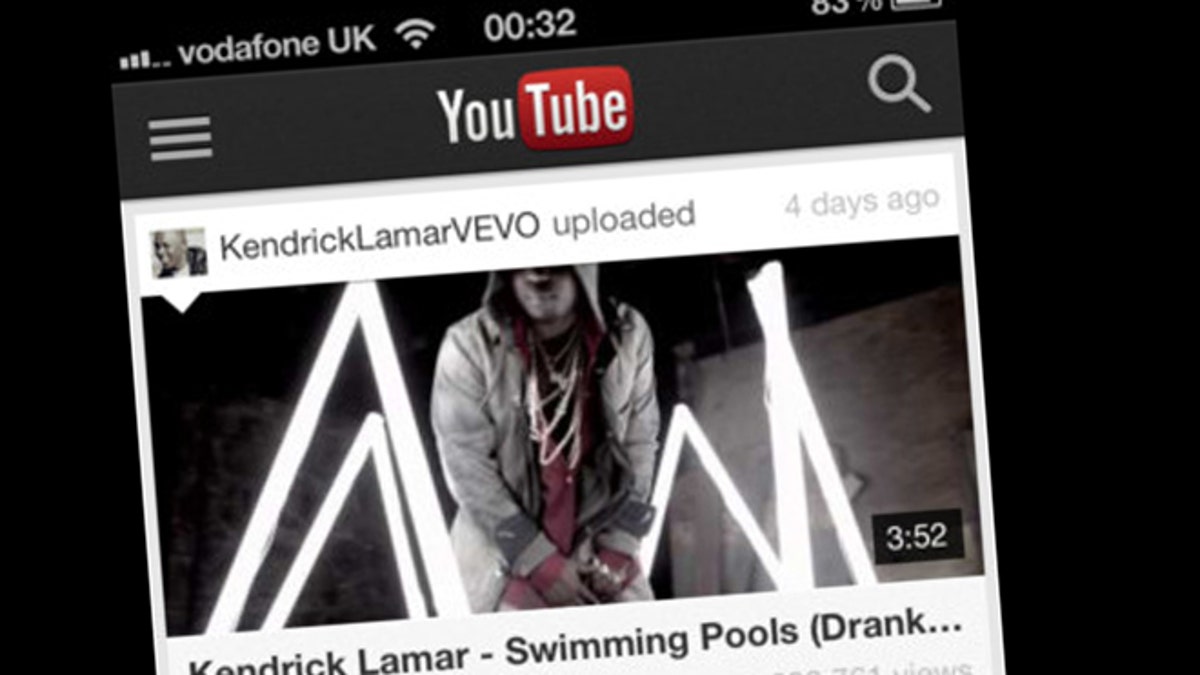
Sept. 11, 2012: A new app from YouTube seeks to fill the void created by growing hostility between Apple and Google. (YouTube)
SAN FRANCISCO – YouTube is being reprogrammed for the iPhone and iPad amid the latest fallout from the growing hostility between Google and Apple.
The changes are being made because Google Inc. and Apple Inc. didn't renew a five-year licensing agreement that established YouTube's video service as one of the built-in applications in the operating system that runs the iPhone and iPad.
YouTube is being bumped from the menu of pre-installed apps on the next version of Apple's mobile operating system, or iOS, which could be released as early as Wednesday when the latest iPhone is expected to be unveiled.
Google is making a pre-emptive strike on Tuesday with the release of a revamped YouTube application. The app is designed to make it as easy as possible for the tens of millions of iPhone and iPad owners to continue watching clips from the world's most popular video site.
[pullquote]
The new YouTube app will create more moneymaking opportunities for Google and video producers because it allows advertising to be shown with the clips. That's something Apple hasn't allowed on the pre-installed YouTube app. The ban on ads prevented many music videos and other widely watched clips from being shown in the iOS app because some copyright owners don't allow their content to be shown if there is no way for them to be paid.
Removing the advertising limitations will mean users of the new iOS app can watch YouTube videos that already have been available on smartphones and tablet computers running on Google's Android software said, Francisco Varela, YouTube's global director of platform partnerships.
"We are offering a better user experience to iPhone users," Varela said of the new YouTube app. "We will now have content parity on all our mobile platforms."
Apple had no comment on Google's claims.
The new YouTube app is tailored for the iPhone, although it will work on the iPad, too. A retooled app specifically tailored for the iPad is supposed to be released in the next few months.
As has always been the case, YouTube's videos also can be watched through Web browsers that work on iOS, including Apple's Safari and Google's Chrome.
YouTube could still end up losing some of its audience on the iPhone, iPad and iPod Touch because device owners will have to go to Apple's App Store to download the free program. YouTube says mobile viewers collectively watch more than 1 billion clips per day.
Many of those YouTube viewers watch on Android devices that have become Apple's bane. Before he died 11 months ago, former Apple CEO Steve Jobs told his biographer Walter Isaacson that he viewed Android as a "stolen product" and vowed to get even with Google and its partners for ripping off his company's ideas.
The vendetta has spurred a series of lawsuits against Android device makers, including a case that culminated last month when a jury awarded Apple more than $1 billion in damages after concluding Samsung Electronics violated iPhone patents.
Apple has also lashed out by removing Google's digital maps as the automatic navigation system on its family of mobile devices. That change will also occur when the next version of iOS comes out. The upgrade will feature Apple's own mobile mapping system.
That switch could hurt Google because maps are a key piece of the company's plans to sell more ads to local merchants.
Google wanted to gain more control over how YouTube worked on Apple's products, a goal that led to a decision to give up YouTube's prized status as a built-in app despite the potential loss in traffic. The licensing agreement allowed Apple to design the YouTube app for the iOS.
"They have been a great partner," Varela said of Apple. "Together, we have absolutely changed the mobile ecosystem. This is just the next evolution in this partnership. We are the only people that can build the best YouTube app."








































